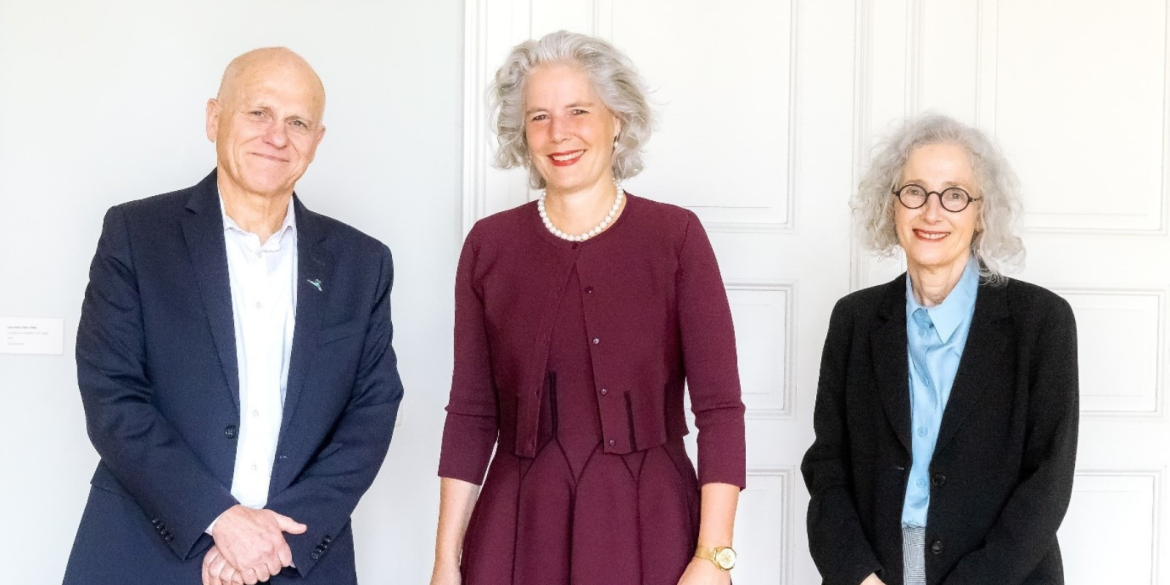
The “German Science Foundation” (DFG) has approved the financing of an innovative joint school for doctoral students, an international collaboration between the Hebrew University of Jerusalem, the University of Leipzig, and the Dubnow Institute in Leipzig. This groundbreaking academic initiative marks a significant step towards fostering international collaboration in the field of humanities.
The school is set to open its doors in the summer of 2024 in Jerusalem, providing a unique opportunity for students to immerse themselves in the study of Jewish material culture in the 20th century and to explore the complex web of relationships between Jews and their surrounding environments. The program, titled “Belongings: Jewish Material Culture in Twentieth-Century Europe and Beyond,” will equip 22 research students with interdisciplinary skills, spanning history, philosophy, literature, cultural studies, art history, and more.
What sets this school apart is that each doctoral thesis will receive full funding for four years and be jointly supervised by senior researchers from the three collaborating institutions. The overarching goal is to cultivate a new generation of young researchers who will integrate seamlessly into educational and cultural institutions, museums, and archives worldwide.
Professor Yfaat Weiss, director of the Dubnow Institute and a member of the Faculty of Humanities at the Hebrew University, who will head the school, expressed her excitement: “The seeds of this joint venture were planted in the summer of 2019 under very different circumstances from today. We hope to open the first cycle in Jerusalem in August 2024 under infinitely better conditions. Recent times have emphasized the importance of knowledge, especially a deep understanding of Jewish history, as a safeguard against global amnesia. Our collaborative approach and the opportunity for students to study in both Jerusalem and Leipzig represent a small yet meaningful step towards preserving the knowledge of humanity in these challenging times.”
Professor Benjamin Pollock, professor of Jewish thought at the Hebrew University and director of the Franz Rosenzweig Minerva Center, who will head the Israeli side of the school, added: “The joint learning of Israeli and international students in Jewish studies, the diversity of the fields of expertise of the senior scholars who will teach in the program, the research focus on material culture – these features make this graduate school one of a kind. In these trying times, it is heartening to recall Jerusalem’s potential as a place where diverse worlds of research and culture converge, expanding the horizons of academic discourse.”
The joint venture boasts the involvement of thirteen senior researchers, including professors from the University of Leipzig, one of Germany’s oldest universities, faculty members from the Hebrew University’s Faculty of Humanities, and researchers from the Leibniz Institute for Jewish History and Culture – Simon Dubnow, one of Europe’s leading institutes in the field.
In the coming weeks, the school will release a call for research student applications to be shared across relevant networks. Accepted students will have the unique opportunity to pursue their doctorate in one of the parent universities—Jerusalem or Leipzig—under joint supervision and full funding for a four-year program. The school’s admissions committee will review submissions and conduct interviews with applicants, with more details to follow in due course.
Picture – left to right:
Prof. Tamir Sheafer, Rector, Hebrew University of Jerusalem; Prof. Eva Inés Obergfell, Rector, University of Leipzig; Professor Yfaat Weiss, Director, Dubnow Institute
Credit: Swen Reichhold, Leipzig University
Disclaimer: In these challenging times of war and crisis, Hebrew University of Jerusalem is resolute in its dedication to advancing research and education. We stand in full support of the brave individuals on the frontlines, safeguarding our nation and the well-being of all Israelis, and extend our deepest gratitude and unwavering solidarity to our community and fellow citizens. Together, we shall prevail against the challenges that confront us, and our shared commitment to the well-being of all Israelis and the pursuit of knowledge remains resolute.
The Hebrew University of Jerusalem is Israel’s premier academic and research institution. With over 25,000 students from 90 countries, it is a hub for advancing scientific knowledge and holds a significant role in Israel’s civilian scientific research output, accounting for nearly 40% of it and has registered over 11,000 patents. The university’s faculty and alumni have earned eight Nobel Prizes and a Fields Medal, underscoring their contributions to ground-breaking discoveries. In the global arena, the Hebrew University ranks 86th according to the Shanghai Ranking. To learn more visit the official website at http://new.huji.ac.il/en.
The Leibniz Institute for Jewish History and Culture – Simon Dubnow (DI) is committed to interdisciplinary research spanning various epochs of Jewish life in Central and Eastern Europe, extending from the Middle Ages to the contemporary era. Our research embraces a pan-European viewpoint and encompasses facets of Jewish migration, with a particular focus on Israel, North and Latin America.To learn more visit the official website at https://www.dubnow.de/en/.
Founded in 1409, the University of Leipzig stands as one of Europe’s venerable institutions. It has nurtured and been a beacon for numerous eminent scholars throughout history, contributing to significant scientific breakthroughs. As a forward-thinking, modern, and inclusive university, we aspire to be at the forefront of higher education in Germany. As a proud member of the German U15 network, we currently hold a prominent position in the nation’s academic landscape, excelling in cutting-edge research and medical expertise. To learn more visit the official website at https://www.uni-leipzig.de/en.
